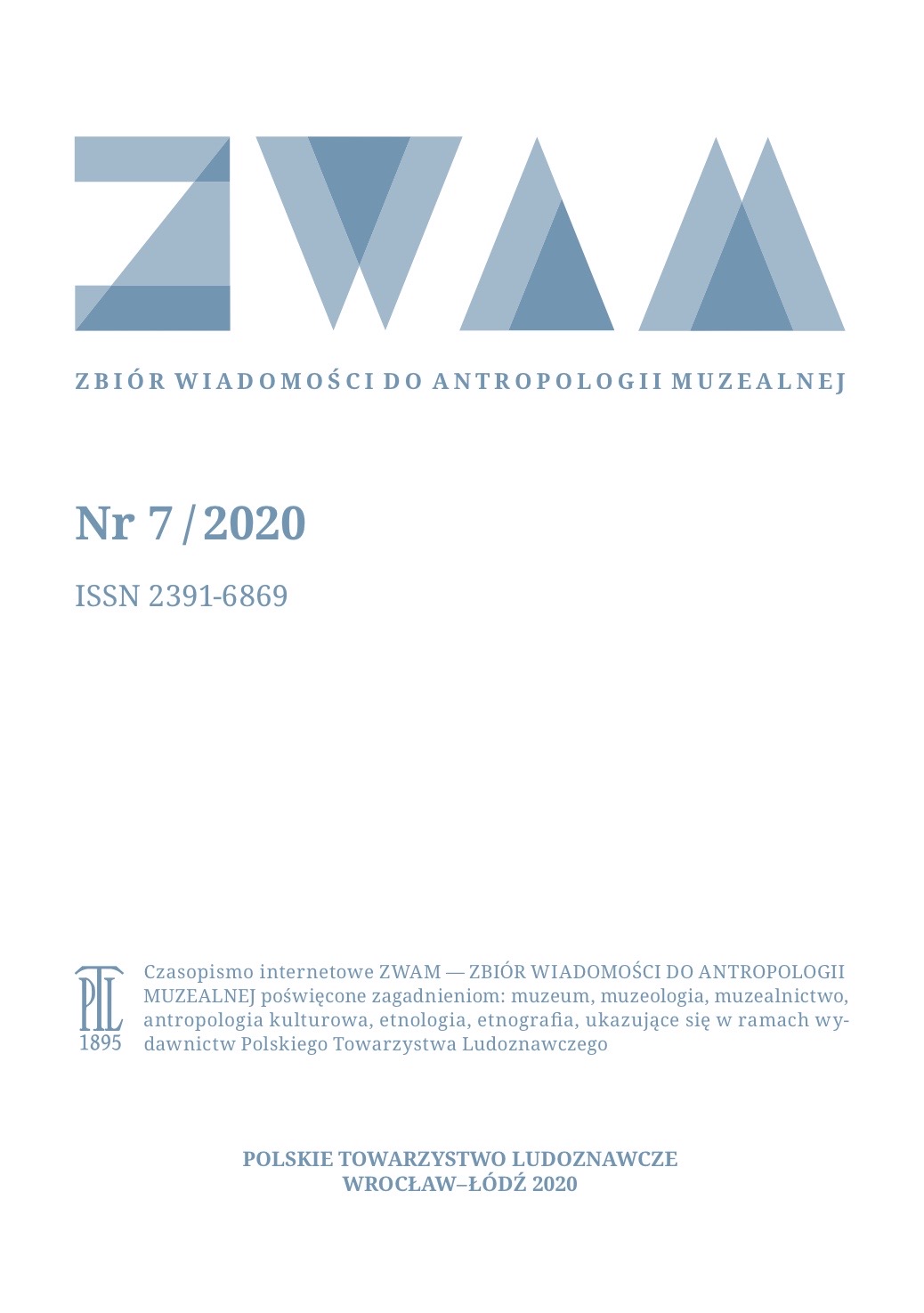Między akademią a życiem: wiedza naukowa i potoczna w perspektywie doświadczenia osobistego i zawodowego etnografa
Between Academia and Life: Scientific and Common Knowledge in the View of the Personal and Professional Experience of an Ethnographer
Author(s): Artur TrapszycSubject(s): Museology & Heritage Studies, Cultural Anthropology / Ethnology, Scientific Life
Published by: Polskie Towarzystwo Ludoznawcze
Keywords: scientific knowledge; common knowledge; personal experience; professional experience; autoethnography;
Summary/Abstract: Postmodern anthropology, revising the canons of positivist ethnography, has been for long drawing attention to the role of a researcher in the perception and description of the studied reality. In this essay I would like to focus on how the personal experience and non-academic knowledge of an ethnologist influence their professional activities, what influences their actions in the field, in the office, in the storeroom and during the arrangement of museum exhibitions. To what extent do they affect their academic knowledge, and how often do ethnologists reach for common knowledge?Referring to my own memories and observations from before the academic years, I try to support the main thesis of my article that the boundary between the two categories of knowledge is blurred, and that the scope of subjects they penetrate overlap in many places. A contemporary man, including an educated ethnologist, is constantly confronting common thinking style with scientism, and in everyday life they often mix these two orders. This is also true of professional life, as I present in a few examples from the museum.Some of the “scientific truths” and “folk wisdom”, even though they are worded differently, they sometimes coincide. Cognitive and ethical relativism, which has become established in postmodern anthropology and penetrated global culture, in turn causes a significant gap between them. The postmodern shape of culture, tinged with idealistic liberalism, often results in cognitive disorientation. This intellectual discomfort and state of uncertainty cause many academics to yearn for the “old”, positivist order. On the other hand, trying to find an orderly world, we open ourselves to our life experiences and the so-called common sense.
Journal: Zbiór Wiadomości do Antropologii Muzealnej
- Issue Year: 2020
- Issue No: 7
- Page Range: 269-288
- Page Count: 19
- Language: Polish

